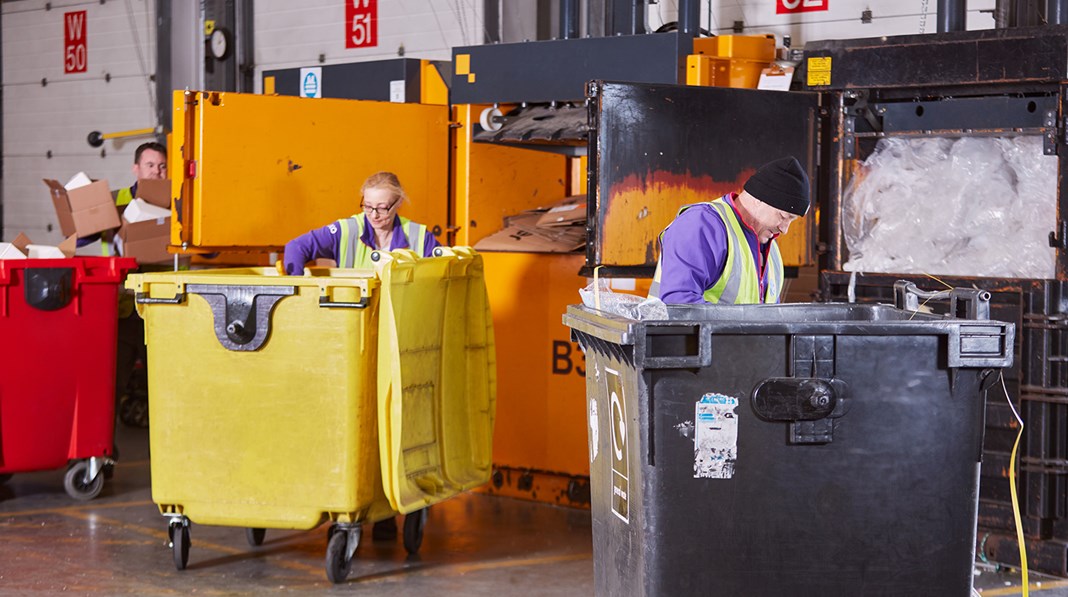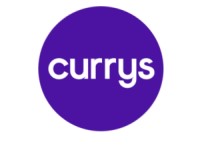We will achieve net zero by 2040
The climate crisis remains one of the greatest threats to our planet and we recognise the impact this has on businesses and supply chains, including our own. Addressing our climate risks and opportunities is embedded into our business as well as our Sustainability and Social Impact Strategy. From the new products and propositions we are launching, to the circular business models we are growing and the emissions reduction investments we are making; climate change impacts are integrated in what we do.
We align our disclosures with the Taskforce on Climate-related Financial Disclosures (TCFD) recommendations and recommended disclosures. We comply with ten of the recommendations and continue to work on providing fuller disclosure on the resilience of our strategy for our wider supply chain. See pages 39-47 of our Annual Report.
Understanding the impacts of climate change on our business provides us with the opportunity to develop a strategic response to mitigate the risks, whilst building on the opportunities this presents for Currys. Exactly what scenario the world takes is completely unknown but the impacts will be felt globally and could happen anywhere at any time, indeed many impacts are already being felt. Our scenario analysis work provides an insight into how exposed Currys could be to climate change and helps us build effective mitigation plans, stress test our organisational resilience and improve the execution of our net zero strategy.
Climate action at a glance
You can read more about our governance structure, strategy, risk management, metrics and targets in our Annual Report.
Net Zero Emissions
Net zero is the future and we're committed to achieving net zero emissions by 2040 by reducing the impact of the energy and resources we use in our operations - but also in our wider value chain.
Our emissions reduction targets to reduce Scope 1, 2 and 3 greenhouse gas (GHG) emissions by 50% across the Group by FY2029/30, have also been approved by the Science Based Targets initiative, as consistent with levels required to meet the goals of the Paris Agreement. We also support the British Retail Consortium's Climate Action Roadmap, committing the UK retail industry to be net zero by at least 2040.

Progress against our net zero target is positive, with a 38% reduction in Scope 1, 2 and 3 emissions achieved in 2024/25 against a 2019/20 baseline. View our Energy & Carbon data in the Sustainable Business chapter of our 2024/25 Annual Report on pages 46-47.
We engaged KPMG LLP to undertake independent limited assurance under ISAE (UK) ISAE 3410 for selected energy consumption, e-waste and GHG emissions. View their assurance statement for 2024/25.
Currys GHG Emissions
The table below provides an overview of Currys’ emissions, including the reduction of our total emissions against a 2019/2020 baseline of 38%.
For further detail, please go to the Data tab in our Policies and Disclosure page
| GHG emissions (tonnes of CO2e emitted) | 2024/25 | Change (%) | 2023/24 (Restated(1)) | 2023/24 (Previously reported) | 2019/20 (Restated(1)) | 2019/20 (Previously reported) |
| Scope 1 | 15,238† | -0.7% | 15,338 | 16,479 | 19,457 | 20,742 |
| Scope 2 (location-based) | 19,006† | -7.5% | 20,547 | 27,775 | 40,393 | 51,131 |
| Scope 2 (market-based) | 864† | -29.2% | 1,221 | 1,221 | 5,383 | 16,121 |
| Scope 3, category 1: Purchased goods and services | 1,793,028 | -7.9% | 1,946,305 | 2,610,143 | 4,203,269 | 4,300,532 |
| Scope 3, category 3: Fuel- and energy-related activities | 12,599 | 0.4% | 12,553 | 14,795 | 13,313 | 15,905 |
| Scope 3, category 4: Upstream transportation and distribution | 63,620 | 3.2% | 61,636 | 67,900 | 165,115 | 165,115 |
| Scope 3, category 5: Waste generated in operations | 895 | -59.9% | 2,232 | 2,447 | 922 | 972 |
| Scope 3, category 6: Business travel | 5,810 | 23.0% | 4,722 | 4,836 | 2,754 | 2,754 |
| Scope 3, category 7: Employee commuting | 38,606 | 7.7% | 35,840 | 39,492 | 25,466 | 27,275 |
| Scope 3, category 9: Downstream transportation and distribution | 17,034 | -1.7% | 17,321 | 18,324 | 35,906 | 35,906 |
| Scope 3, category 11: Use of sold products | 8,519,733 | 7.7% | 7,910,269 | 14,089,417 | 12,569,750 | 30,425,451 |
| Scope 3, category 12: End-of-life treatment of sold products | 2,644 | -56.0% | 6,011 | 6,990 | 9,074 | 9,843 |
| Total: scope 1, scope 2 market-based, scope 3 (all categories(2)) | 10,470,071 | 4.6% | 10,013,448 | 16,872,044 | 17,050,409 | 35,020,616 |
| GHG emissions performance versus targets (tonnes of CO2e emitted) | 2024/25 | Change against baseline (%) | 2023/25 (Restated(1)) | 2023/24 (Previously reported) | 2019/20 (Restated(1)) | 2019/20 (Previously reported) |
| Scope 1 and Scope 2 market-based emissions | 16,102 | -35.2% | 16,559 | 17,700 | 24,840 | 36,863 |
| Purchased goods and services and use of sold products emissions (categories 1 and 11) | 10,312,761 | -38.5% | 9,856,573 | 16,699,560 | 16,773,019 | 34,725,983 |
(†)We engaged KPMG LLP to undertake independent limited assurance under ISAE (UK) 3000 and ISAE 3410 for selected energy consumption, e-waste and Scope 1 and 2 GHG emissions which have been highlighted with a †. For more details of the scope of their work, please refer to their assurance opinion on our website.
Footnotes:
(1) All data has been restated to reflect the disposal of Kotsovolos on 10 April 2024. For Scope 3 emissions, we have removed Kotsovolos information across all categories and have also undertaken further revisions related to: increased availability of product information including wattage and product usage (Category 11); latest available emission factors (Categories 1 and 11) and improved our calculation model by reducing our use of a spend-based approach (Category 1). More information on this restatement process can be found in our Basis of Reporting at https://www.currysplc.com/sustainable-business/policies-disclosures/
(2) Our Basis of Reporting includes an assessment of the relevant Scope 3 categories for Currys.
Scope 3 emissions
Our Scope 3 emissions include the indirect emissions from across our value chain which account for 99% of our total emissions. The most material impacts are within purchased goods and services and the use of sold products. We will achieve reductions in these emissions through a programme of activities involving our suppliers, our manufacturers and through colleague and customer engagement.
We are committed to reducing our absolute Scope 3 GHG emissions from purchased goods and services and use of sold products by 50% by 2029/30 from a 2019/20 base year. We are proud to have achieved a 38.6% reduction to date, although our emissions when compared to last year have increased by 4.6%. This in-year change is a result of increased sale volumes in the UK&I and Nordics, as well as a slight increase in emissions associated with electricity consumption in the UK.
In 2024/25 we have made progress on a number of fronts, including implementing a new supplier engagement trial and gathering more energy consumption data on the products we sell to increase the accuracy of our data. Read more in our Annual Report.
Operational emissions
We continue to take action to reduce our use of energy, which leads to cost efficiencies and emissions reductions.
Energy Consumption
We have continued certification of our Energy Management standard with ISO 50001:2018 for our UK & Ireland estate and fleet. We also submitted Energy Savings Opportunity Scheme (‘ESOS’) reports for UK & Ireland and the ESOS action plan in the UK. Elkjøp Nordic and our UK Customer Repair Centre in Newark are ISO 14001 certified, and we use the Environmental Management system to continuously improve our environmental objectives, performances and internal auditing.
We continue to optimise our Building Management system control for Heating, Ventilation and Air conditioning (‘HVAC’) systems, increase the use of LEDs and optimise lighting levels, and improve our reporting and monitoring of energy consumption.
For more information, see pages 44-45 of our 2024/25 Annual Report.
Renewable Energy Sources
We continue to have 100% of our properties in the UK, Ireland, Norway, Sweden, Finland and Denmark powered with renewable electricity either through supplier contracts or backed by purchased renewable energy certificates (REGOs). We have 16 sites across the Group with solar PV installed and continue to explore opportunities to introduce solar PV onto more buildings.
In the spring of 2025, we installed solar panels at our new warehouse at Jönköping, Sweden, with a maximum production capacity of 449,000kWh. These panels are scheduled to become fully operational by the end of 2025.
Low carbon fleet
We are fully committed to transitioning 100% of our company cars and small van fleet and 50% of our medium to heavy fleet to electric or alternative fuel by 2030.

We have 30 EVs and 16 vehicles running on alternative fuels in service across the Group. We plan to invest over £4m in the next three years to progress our transition away from diesel vehicles.
We progressed a trial at our Bolton delivery depot using a separate hydrotreated vegetable oil (‘HVO’) fuel tank to operate 15 7.2 tonne Iveco Daily home delivery vans. This has allowed us to compare the ease of supply, use and efficiency of HVO compared to conventional diesel.
We operate a 7.2 tonne delivery vehicle which is powered by compressed natural gas (‘CNG’) from our Newark delivery depot and utilise solar panels on more than 300 vehicle roofs.

Our environmental policy covers the impact of our operations, products and services - including everything to do with energy and greenhouse gas emissions, materials and resources, our suppliers, our customers, legislative compliance and risk.
